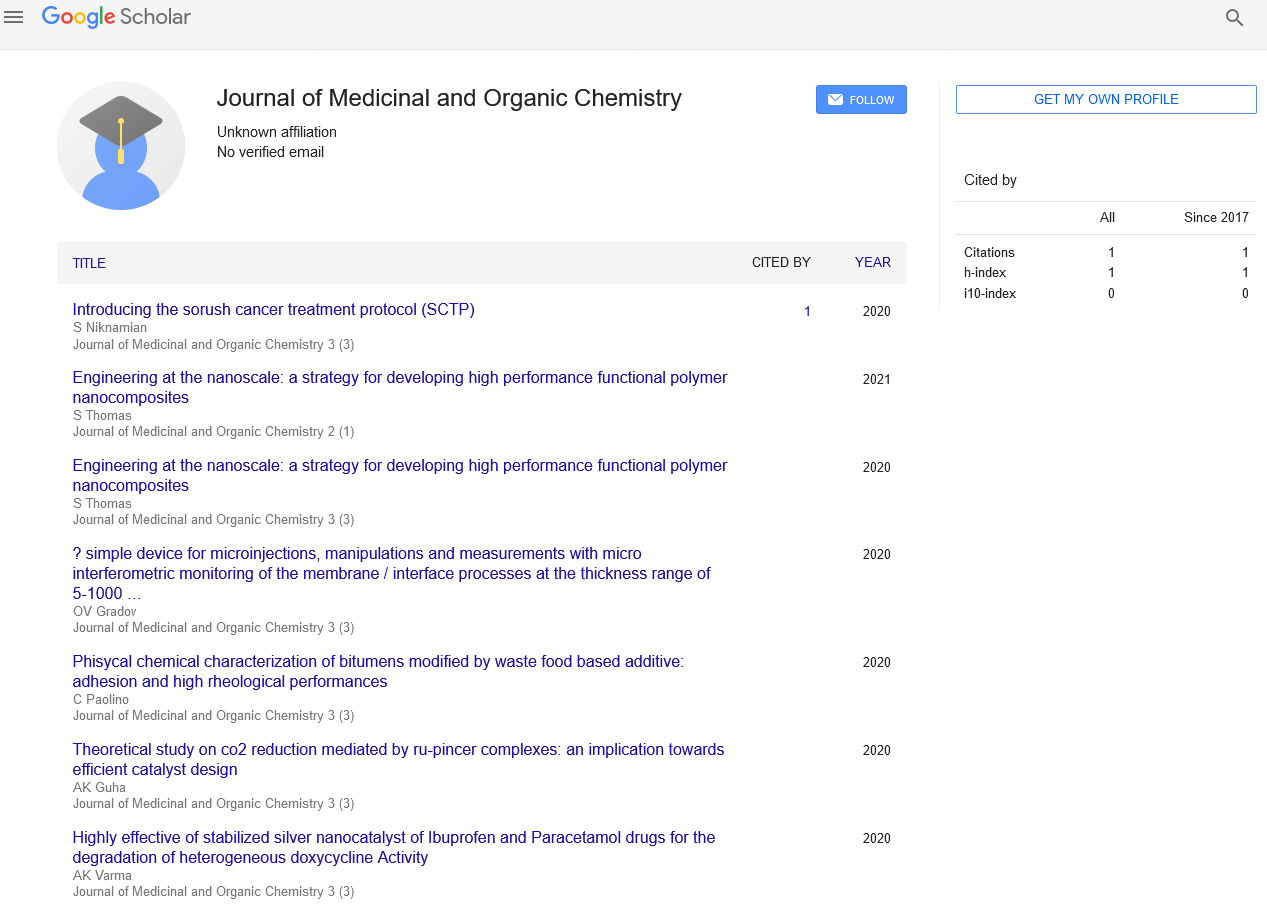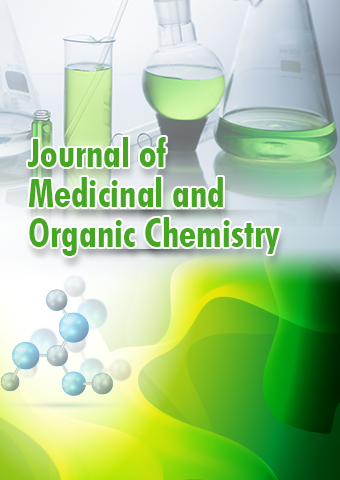Perspective - Journal of Medicinal and Organic Chemistry (2024) Volume 7, Issue 3
Exploring the Frontiers of Medicinal Chemistry: Bridging Science and Healing
- Corresponding Author:
- Ani Lither
Department of Medicinal Chemistry,
Institute of Pharmaceutical Science,
Maharashtra,
India
E-mail: anilither@ccf.org
Received: 04-May-2024, Manuscript No. jmoc-24-134115; Editor assigned: 08-May-2024, PreQC No. jmoc-24-134115 (PQ); Reviewed: 22-May-2024, QC No. jmoc-24-134115; Revised: 07-Jun-2024, Manuscript No. jmoc-24-134115 (R); Published: 14-Jun-2024, DOI: 10.37532/jmoc.2024.7(3).199-200
Introduction
Medicinal chemistry stands as the bridge between the disciplines of chemistry and pharmacology, a realm where molecules are meticulously designed and optimized to combat diseases and improve human health. It’s a field where scientific innovation meets the pressing needs of healthcare, blending the intricacies of organic chemistry with the aspirations of medical progress. This article delves into the fascinating world of medicinal chemistry, unraveling its principles, methodologies, and the profound impact it has on modern healthcare.
Description
Understanding medicinal chemistry
At its core, medicinal chemistry is the science of designing, synthesizing, and studying molecules with therapeutic potential. These molecules, often referred to as drugs or pharmaceuticals, interact with biological targets within the body to produce a desired therapeutic effect. Whether it’s alleviating pain, combating infections, or managing chronic conditions, medicinal chemists play a pivotal role in the discovery and development of life-saving medications.
Principles and approaches
Medicinal chemistry operates on several guiding principles, foremost among them being the understanding of molecular interactions within biological systems. This involves deciphering the structure and function of biological targets such as enzymes, receptors, and DNA, and designing molecules that can selectively modulate these targets. Key approaches in medicinal chemistry include Structure-Activity Relationship (SAR) studies, wherein the relationship between the chemical structure of a molecule and its biological activity is systematically explored. This approach allows medicinal chemists to optimize the properties of a drug, enhancing its potency, selectivity, and safety profile.
Another crucial aspect of medicinal chemistry is rational drug design, which utilizes computational techniques and molecular modeling to predict the interactions between a drug candidate and its target. By harnessing the power of computational tools, medicinal chemists can expedite the drug discovery process, identifying promising lead compounds and optimizing their properties prior to synthesis and testing.
Drug discovery and development
The journey from initial concept to market-ready medication is a complex and multi-faceted process, often spanning several years and involving collaboration across disciplines. It typically begins with target identification, wherein researchers identify specific biological pathways or molecules implicated in a disease process. Once a target is validated, medicinal chemists embark on the task of designing and synthesizing molecules that can modulate this target, using a combination of synthetic organic chemistry, computational modeling, and biochemical assays.
The synthesized compounds undergo rigorous testing in preclinical models to assess their pharmacokinetic and pharmacodynamic properties, as well as their safety profile. Promising candidates then progress to clinical trials, where their efficacy and safety are evaluated in human subjects. These trials are conducted in multiple phases, each designed to gather increasingly comprehensive data on the drug’s performance and safety profile. Finally, upon successful completion of clinical trials, regulatory approval is sought, and the drug can be brought to market, where it can benefit patients in need.
Impact and future directions
The impact of medicinal chemistry on healthcare is profound and far-reaching, with countless lives saved and improved by the medications it has helped bring to fruition. From antibiotics that have revolutionized the treatment of infectious diseases to targeted therapies that have transformed the management of cancer, medicinal chemistry continues to drive innovation and progress in medicine.
Looking ahead, the future of medicinal chemistry holds tremendous promise, fueled by advances in technology, increased understanding of disease mechanisms, and growing collaboration across disciplines. Emerging areas such as precision medicine, which aims to tailor treatments to individual patients based on their unique genetic makeup and disease characteristics, present exciting opportunities for further advancement in the field.
Conclusion
In conclusion, medicinal chemistry represents a cornerstone of modern healthcare, where scientific inquiry converges with the imperative to alleviate human suffering. Through the tireless efforts of medicinal chemists, new frontiers in drug discovery and development are continually being explored, offering hope and healing to patients around the globe. As we continue to unlock the mysteries of biology and chemistry, the potential for transformative breakthroughs in medicine remains limitless, driven by the enduring quest to conquer disease and improve lives.

